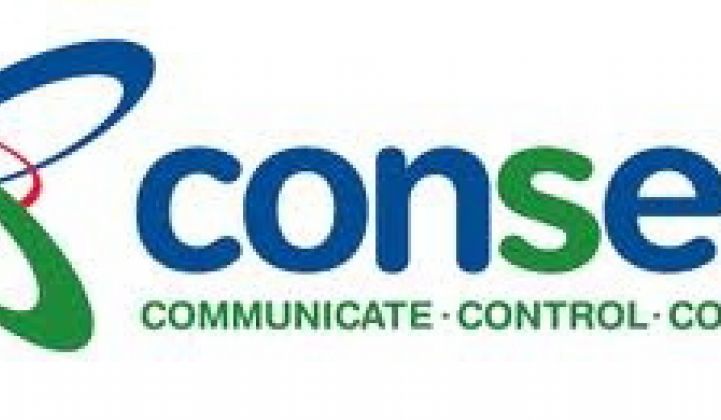Late last year, home energy control startup Consert told us that the company was in advanced talks to be acquired. This week, the San Antonio, Texas-based startup took the plunge, announcing it had been bought by Landis+Gyr, the smart metering and communications giant owned by Japan’s Toshiba.
The news appears to promise a future for Consert’s sophisticated, though expensive, technology for connecting lots of households into blocks of “aggregated load” in ways that can make it a more reliable grid resource than traditional demand response.
It’s as yet unclear how cheerful the acquisition price might make Consert’s investors, however. The startup, founded in 2008, has raised about $25 million from investors including General Electric, Verizon, Qualcomm and Constellation Energy.
Bloomberg reported Wednesday that a Toshiba spokesperson cited the purchase price at “more than 1 billion yen ($11 million)” -- less than half what Consert has raised. Jack Roberts, Consert CEO, told Greentech Media in an email that this figure was incorrect, but that the parties weren’t disclosing any financial details.
“I think this verifies that the industry sees value in the technology we’ve brought forth,” Jeff Ebihara, vice president of marketing for Consert, said in a Friday phone call. “It also gives us the ability to be part of a bigger solution.” While the companies haven’t laid out specifics on how they’ll work together, Ebihara said that the first step would be to integrate into Landis+Gyr’s GridStream technology for smart meter and grid networking.
Consert now uses cellular communications to network hundreds and thousands of homes and small businesses, connecting air conditioners, water heaters, pool pumps and other major loads in real-time, two way communication. That costs about $400 to $500 per home, a lot more than most of the home energy management platforms trying to break into the consumer market today -- but it also gives the utility a far greater level of control and visibility into just how much power it’s reducing in real time.
The startup has one major project underway with San Antonio municipal utility CPS Energy, aimed at enabling 250 megawatts of load shedding across 140,000 customers over the next four years. Beyond shedding peak load, Consert’s two-way control and verification setup could allow the system to qualify for playing into Texas’s market for “non-spinning reserves,” a class of grid resource usually reserved for power plants and other “dispatchable” assets. CPS has submitted its application to ERCOT, the Texas grid operator, and could start bidding its Consert-connected homes into markets by this summer.
Consert has also been working with New York utilities Consolidated Edison and Central Hudson Gas & Electric, and multi-state utility AEP in its Kentucky service territory, as well as other municipal utilities scattered around the country. It would be easy to imagine Toshiba, which has its own home and building energy management business, trying Consert out in Japan, where the country is facing a huge energy challenge amidst the post-Fukushima shutdown of its nuclear power plants
With the true price still undisclosed, it’s hard to say whether Toshiba’s acquisition has pleased Consert’s investors or not. It wouldn’t be unusual if the price wasn’t in the 3X-to-5X range preferred by traditional VC investors, as some recent smart grid acquisitions (ABB and Tropos Networks, Silicon Labs and Ember, Itron and SmartSynch) make clear.
Of course, Consert’s backers weren’t straight VC firms, but strategic investors with stakes in broader smart grid markets. Verizon and Qualcomm are big players in cellular smart grid technology, obviously. Constellation Energy does demand response for commercial customers that could include small businesses that Consert could reach, and General Electric builds gear and provides services across the smart grid spectrum.
Some have pre-existing relationship with Landis+Gyr as well -- GE’s smart meters come with L+G communications chipsets inside them, Verizon does smart metering backhaul for L+G AMI networks, and Qualcomm’s newest-generation 3G cellular chipsets are finding their way into smart meters around the world, with an announced partnership with Itron, but the potential to expand to other AMI vendors as well.



